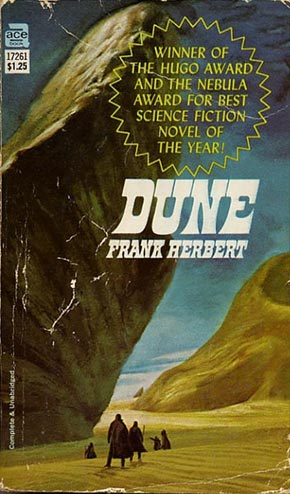 I was reminded recently that this yer marks the 50th anniversary of the publication on DUNE, Frank Herbert’s epic science fiction novel. I could not let this anniversary year pass without acknowledging the impact that the book has made on my life as a comics creator and on Trekker specifically.
I was reminded recently that this yer marks the 50th anniversary of the publication on DUNE, Frank Herbert’s epic science fiction novel. I could not let this anniversary year pass without acknowledging the impact that the book has made on my life as a comics creator and on Trekker specifically.
I came across the book as a young teenager a few years after it was published. I had already discovered a love for science fiction through the adventures of Flash Gordon, Johnny Quest, Doc Savage and other high-voltage action tales. Dune was something else entirely: a subtle, complex, sophisticated and sprawling story of mind-bending scale and concepts. It had many of the trappings of the Sci-Fi I’d already found– strange worlds, colorful characters, exotic devices, ships and battles… but the tale unfolded in a much more deliberate fashion– an entire, vivid universe was conceived and presented in the unfolding of a dense, high-stakes drama.
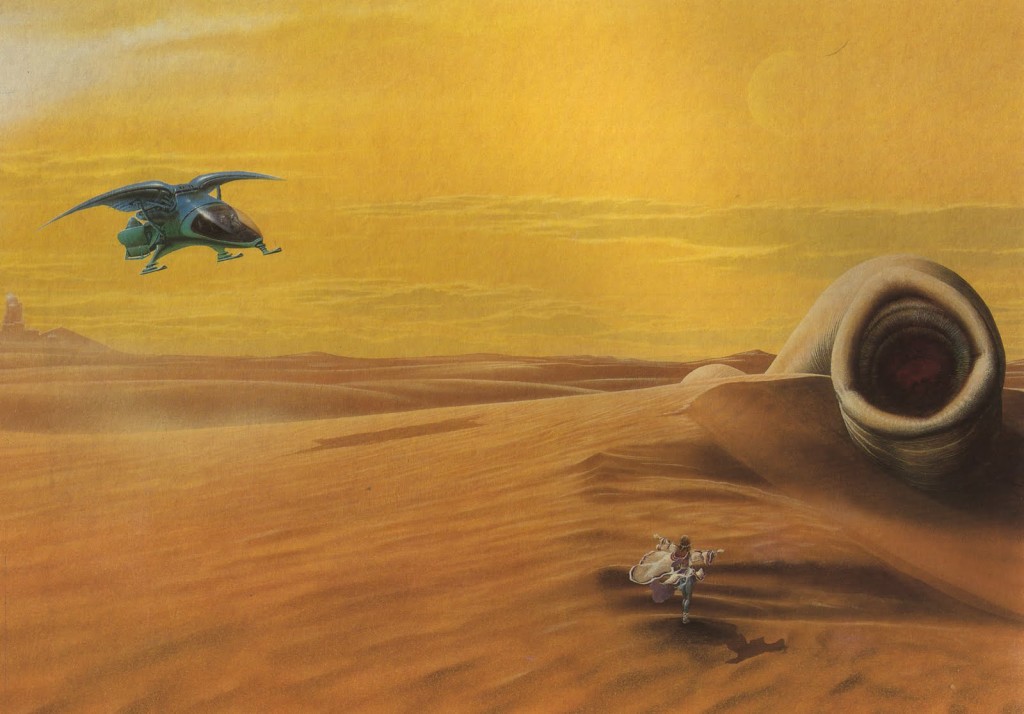 The concepts were huge– desert planets, giant sand worms, an invaluable “spice” that enabled star travel, political forces locked in a conflict to control all of it. Rebels, corrupt systems, and young heroes who would rise to affect the course of humankind’s evolving path through the stars. No wonder DUNE arrived like a thunderbolt, why it won awards and influenced so many science fiction writers with an impact like Tolkien’s trilogy had on fantasy novels: inescapable.
The concepts were huge– desert planets, giant sand worms, an invaluable “spice” that enabled star travel, political forces locked in a conflict to control all of it. Rebels, corrupt systems, and young heroes who would rise to affect the course of humankind’s evolving path through the stars. No wonder DUNE arrived like a thunderbolt, why it won awards and influenced so many science fiction writers with an impact like Tolkien’s trilogy had on fantasy novels: inescapable.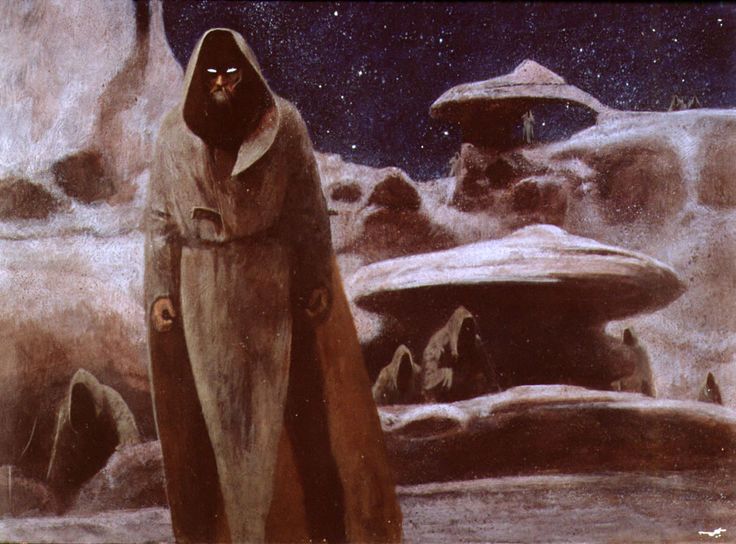 Now here’s my confession: I had to start and put down the book several times before it got its hooks in me and wouldn’t let go. As a fairly young sci-fi novel reader, I found the pace of the story too slow and the concepts too abstract to grab me at first blush. But– there was something intriguing enough there that kept me coming back to the book until I did get caught up in the thing. And once that happened, there was no stopping. Anyone who has had the exhilarating experience of getting entranced and completely lost in a novel’s spell knows what I mean.
Now here’s my confession: I had to start and put down the book several times before it got its hooks in me and wouldn’t let go. As a fairly young sci-fi novel reader, I found the pace of the story too slow and the concepts too abstract to grab me at first blush. But– there was something intriguing enough there that kept me coming back to the book until I did get caught up in the thing. And once that happened, there was no stopping. Anyone who has had the exhilarating experience of getting entranced and completely lost in a novel’s spell knows what I mean.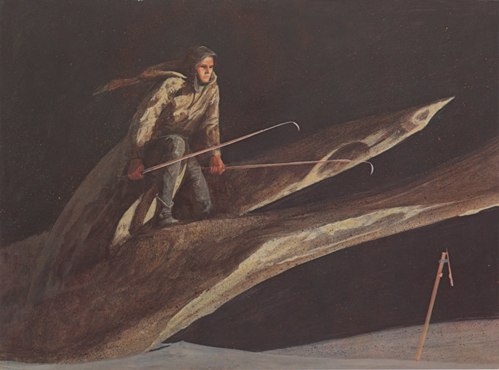 Following DUNE there was a long string of sequel novels, some brilliant, some less so. And there was a rather bizarre (naturally) David Lynch-directed movie as well which served at least as a curious scrapbook of images based on the story. But for me, the deepest impact by far was made by that first book, with the central story of young Paul Atreides, and his journey of revelation and discovery.
Following DUNE there was a long string of sequel novels, some brilliant, some less so. And there was a rather bizarre (naturally) David Lynch-directed movie as well which served at least as a curious scrapbook of images based on the story. But for me, the deepest impact by far was made by that first book, with the central story of young Paul Atreides, and his journey of revelation and discovery.
You might be detecting by now of some of the ways in which DUNE has had its impact on Trekker, although to this point that influence has been mostly an indirect one, hinted at but not center-stage. All of that will be changing with the stories that are poised to follow the Volstock Payoff.
From the first, as I was planning the series, I always wanted to achieve some degree of that epic scale that Herbert accomplished so well in DUNE. But I knew that initially, I was far to inexperienced a writer to command that type of story. So, Trekker began with the more basic, elemental tales that I was most familiar and comfortable with. They are also the kind of stories that lend themselves most readily to the comic page.
But even in those earliest tales I tried to plant some seeds– hints of the large, distant ruling Council, the resistance movements like Rigel, power-struggles among factions as shown in “the Babel Cannon”. All to prepare for the eventual, gradual shift of our focus from the streets of New Gelaph to a larger stage.
It’s taking a lot longer to get there than I’d anticipated, but at last the series and its author are prepared for that step.
Along the way, Mercy will, of course, remain at the core of everything. She will still continue her own “journey of discovery”, whether she is willing or no. She will continue to leap into action, whether it is wise or no. And she will continue to be as compelling and powerful a character as I can make her.
I can’t wait to share it all.
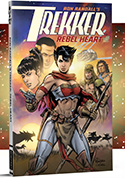

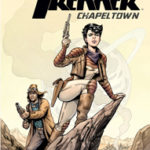
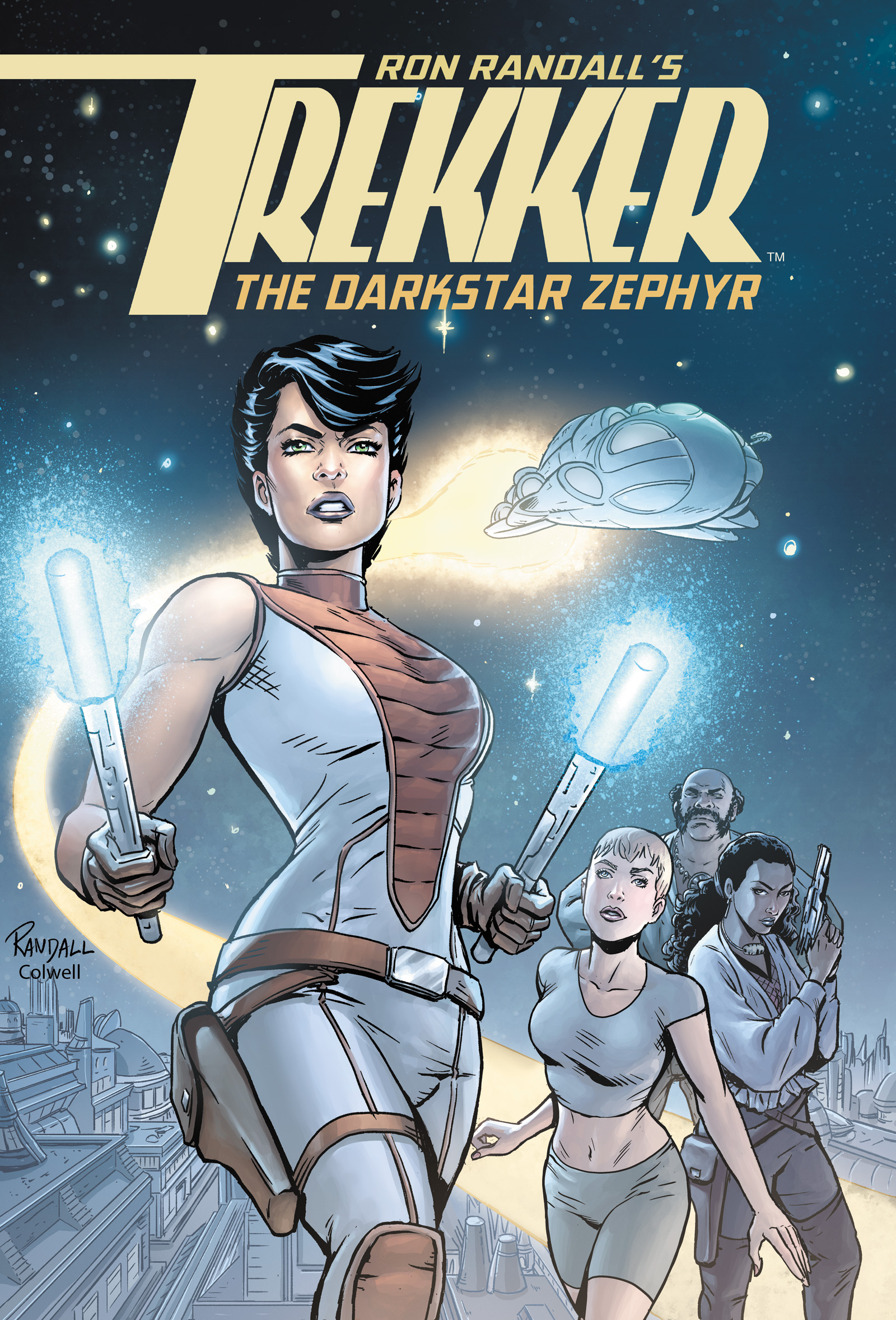

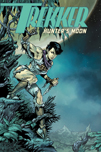
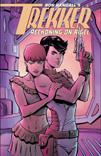

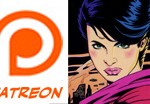

 AL WILLIAMSON
AL WILLIAMSON JEREMY COLWELL
JEREMY COLWELL JOE KUBERT
JOE KUBERT MARK SCHULTZ
MARK SCHULTZ PAUL CHADWICK
PAUL CHADWICK PERISCOPE STUDIO
PERISCOPE STUDIO RonRandall.com
RonRandall.com THOMAS YEATES
THOMAS YEATES FAMILY MAN
FAMILY MAN MAD GENIUS COMICS
MAD GENIUS COMICS PERILS ON PLANET X
PERILS ON PLANET X QUANTUM VIBE
QUANTUM VIBE THE LAST DIPLOMAT
THE LAST DIPLOMAT THRILLBENT
THRILLBENT TRANSPOSE OPERATOR
TRANSPOSE OPERATOR